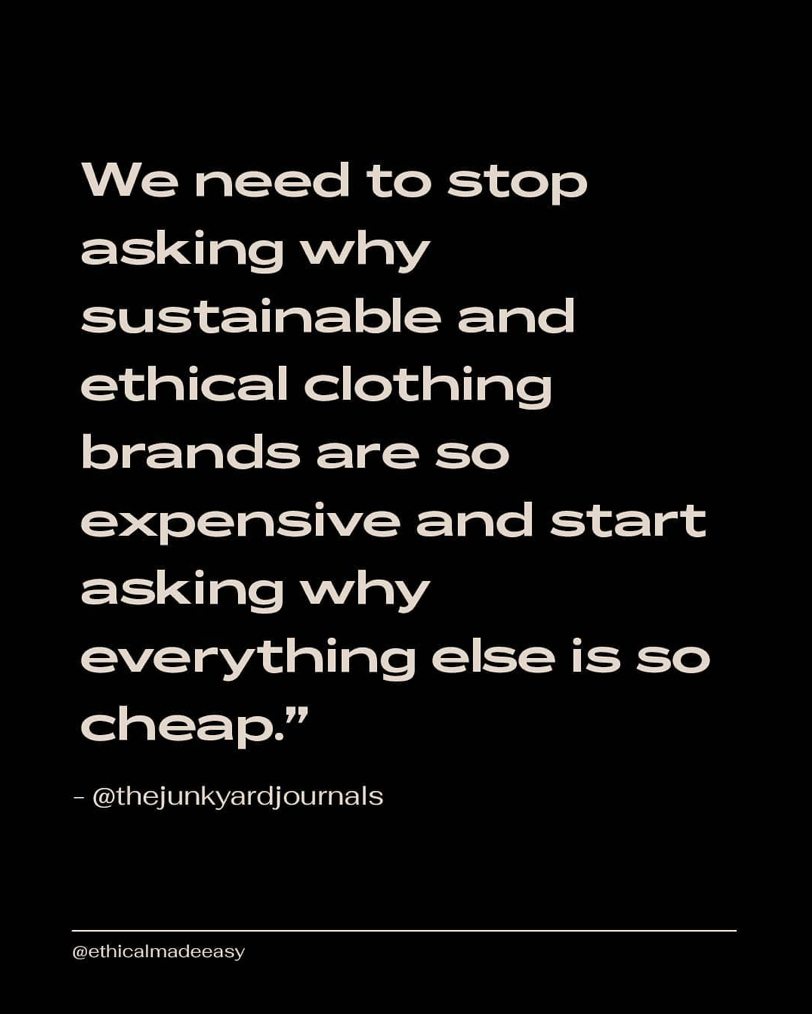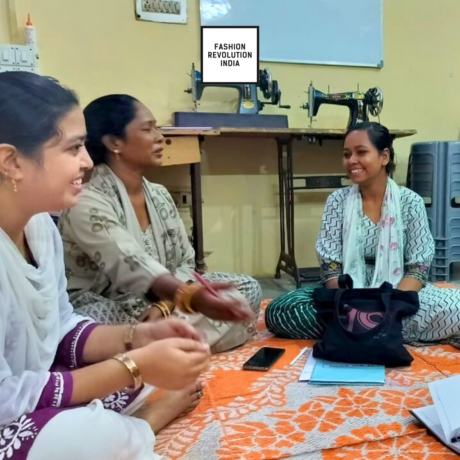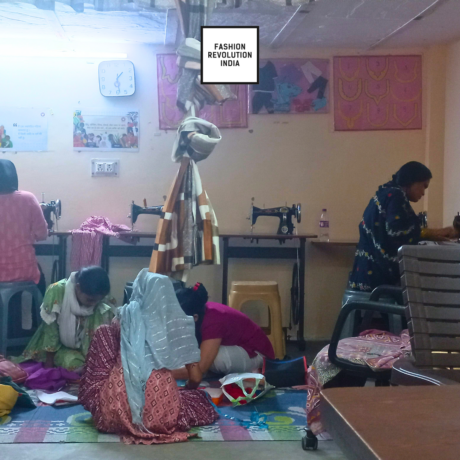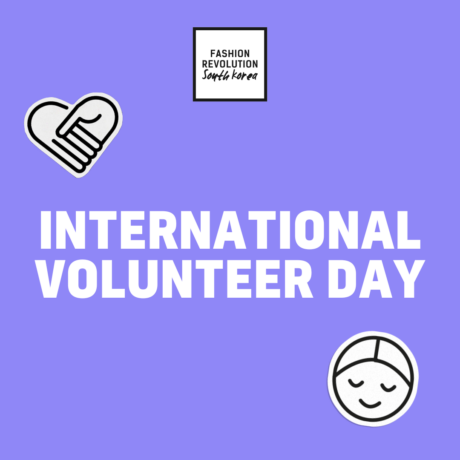During the pandemic, shopping small is more important than ever
2020 has been a year for the history books. Some of us have fared better than others, but it’s safe to say that everyone has been affected by the global pandemic in one way or another. Here at Ethical Made Easy, we’re incredibly privileged to be living in Australia, as is everyone living in our country of origin, New Zealand. COVID-19 is on the verge of being eradicated in both countries thanks to fast-acting governments, strict lockdown measures, and domestic border closures. But that hasn’t come without the emotional toll on individuals and the monetary toll on small businesses in particular.
Of course there are some businesses that have been able to pivot and succeed in this pandemic (we’re looking at you, alcohol delivery services). But for small businesses, this has been the exception, not the rule. Even in our ‘lucky countries’ the pandemic has wreaked havoc on the little guys. A report by Quickbooks and YouGov found that 63% of small businesses were negatively impacted by COVID-19, 37% said remaining viable was a major concern and 21% were concerned about ensuring their staff had work. Remember, these findings are from Australia where things have almost returned to ‘normal’.
As an ethical brand directory, Ethical Made Easy is home to a multitude of amazing small businesses who are actively working towards creating a better future for the fashion industry and beyond. Unfortunately the founders of these brands are no strangers to the negative effects of COVID-19, particularly the way it’s impacted their workers. Kopal is the founder of her eponymous brand that’s usually based in the coastal paradise of Byron Bay, Australia. She found herself in India for eight months where she witnessed firsthand hundreds of millions of migrant workers fleeing from larger capital cities to their rural homes, many of whom worked in the fashion and textile industry and ran out of work due to cancelled orders from large fashion brands in the western world. Kopal described it as a “humanitarian crisis of epic proportions.” But instead of refusing to #PAYUP like many large businesses have during COVID-19 (as we’ve seen through Remake Our World‘s campaign), Kopal continued to support her workers in any way she could—whether that was paying them full wages or recharging their mobile phone accounts. This commitment to doing better is the backbone of every small business we work with and it’s why they deserve our support more than ever right now.
Unfortunately other small labels that are part of the Ethical Made Easy community haven’t been able to continue, even though their founders have fought incredibly hard to stay afloat. Some have been forced to pause production or even shut up shop indefinitely after several months of uncertainty. With small businesses already competing against fast fashion giants, it’s no wonder the pressure has become too much and the desire to support their makers is negated by dwindling sales and tight budgets (or lack thereof).
The saddest part is, these small labels are the ones who’ve considered fair wages, an ethical supply chain and sustainable production from day one. When you support a small business you’re actively supporting the communities they employ and are keeping the dreams of these founders alive. Not to mention, by shopping small you’re diverting funds away from big brands and shareholders, and into the hands of those trying to make a change in the world. It’s these reasons (amongst many) that prove why we should be supporting small businesses committed to a better future rather than the big players that are only concerned about the bottom line.
If you don’t believe your dollars can truly make an impact, here’s an example of what supporting a small business can do. Australian brand Thankyou is a social enterprise that sells personal care goods and diverts all profits to a charitable trust focused on tackling poverty. It comes as no surprise that people wanted to buy personal care products—specifically hand sanitiser and hand wash—during a global pandemic. Aussies made the wonderful decision to support Thankyou during this time—whether that’s because hand sanitiser was a hot commodity or because they wanted to buy from a charitable business is anyone’s guess. Either way, it led to huge profits for Thankyou and the subsequent donation of those profits to deserving charities. The dollar figure on those profits? $10 million to be exact!
Co-founder of Thankyou, Daniel Flynn, touched on these profits in the brand’s recent campaign video, “While the world’s been in turmoil, some people got filthy rich…We know because we’re one of them.” This led to a realisation for Flynn and the Thankyou team—if they partnered with corporations larger than themselves, in the same way that Kanye West partners with Adidas for example, Thankyou could make monumental profits that could literally change the world. “That wouldn’t have been $10 million we made in a few months. It would have been literally hundreds of millions of our collective consumer dollars,” Flynn said. This is why Thankyou has put a callout to two of the world’s largest brands, Unilever and P&G, to continue Thankyou’s trajectory at a much larger scale. You can track the brand’s ‘moonshot’ plan here.
We’ve always known that small businesses have the power to make huge change in the world, but seeing it in practice at a time when it’s more necessary than ever before has motivated us to continuously do better and demand better.
This awe-inspiring example proves that everyday consumers, like you and I, are pivotal in making campaigns like Thankyou’s succeed. By buying from small businesses, we can actively make changes in communities all around the world. Imagine if we showed the support to a brand like Kopal (or any of the brands from our directory) in the same way that we’ve been able to support Thankyou. Kopal could potentially employ makers in India who’ve lost their jobs due to large brands refusing to #PAYUP. Not to mention, the products made by these small businesses are made far more sustainably and ethically for both the maker and the consumer. So the impact goes much further than helping those in need; it has the potential to benefit the health of our planet and its people well into the future.
When the time does come to make your next purchase, we encourage you to pause and consider who you’re buying it from. Ask yourself if the purchase is going to support a small business that literally exists to make the world a better place, or will your hard earned dollars be stuffing the very large pockets of billionaires who are only concerned about profit and nothing else? Will your purchase be supporting minority business owners, who experience less access to capital than those more privileged? The power is in your hands—isn’t that exciting?
We live by the adage, do the best you can, where you are, with the resources you have. If you have the means to shop ethically, amazing. But don’t stop there! Sign the Fashion Revolution Manifesto and the #PAYUP petition, listen to informative podcasts like Remember Who Made Them, watch films that encourage grassroots change like 2040, and continue your education by following Ethical Made Easy —we’re always open to new ideas, suggestions and life-affirming chats, so don’t be afraid to say hi.
Follow the work of Ethical Made Easy on Facebook and Instagram.









